
Politics
19:10, 13-Nov-2017
China, ASEAN to consult on text of South China Sea Code of Conduct
CGTN
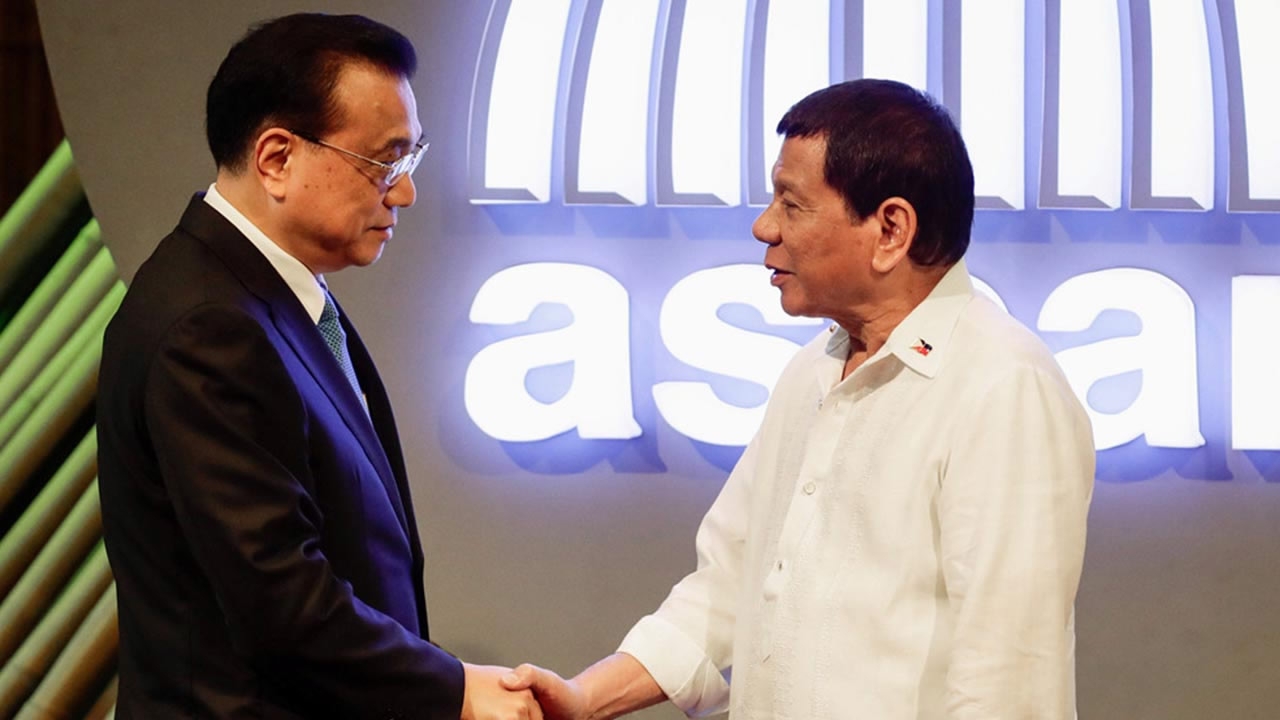
China and the Association of Southeast Asian Nations (ASEAN) will start consultation on the text of the Code of Conduct (COC) in the South China Sea, Chinese Premier Li Keqiang said on Monday.
Premier Li made the remarks when attending the 20th China-ASEAN (10+1) leaders' meeting in Philippine capital Manila.
China hopes that the COC could be adopted at an early date and serve as a "stabilizer" of peace in the South China Sea, the Chinese premier said.
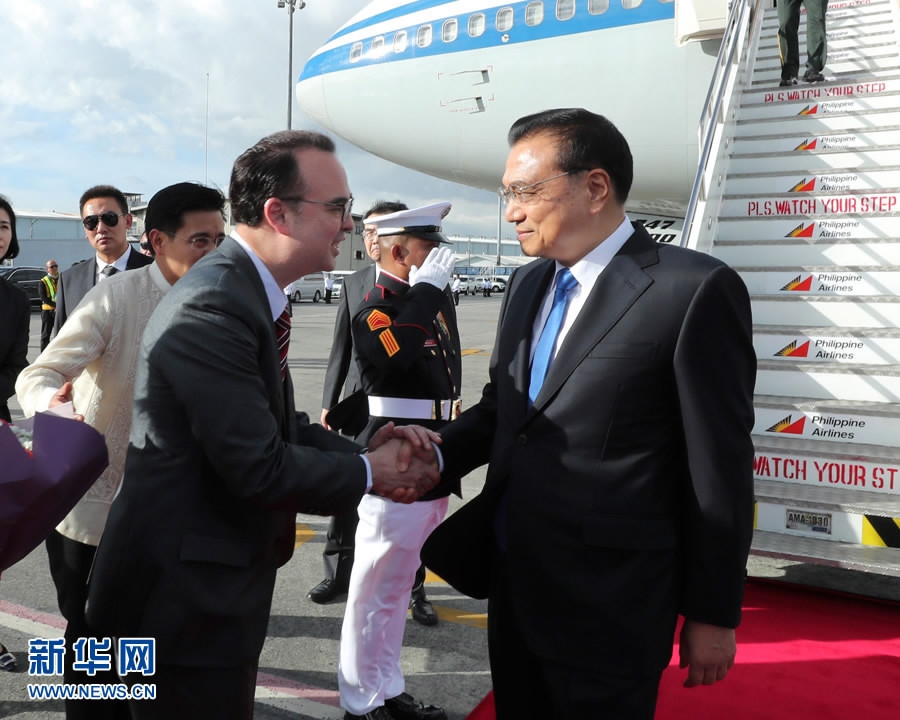
Chinese Premier Li Keqiang (R) arrives in Manila, Philippines, November 12, 2017. /Xinhua Photo
Chinese Premier Li Keqiang (R) arrives in Manila, Philippines, November 12, 2017. /Xinhua Photo
China, he said, expects to work with ASEAN countries on the basis of friendly negotiations to fully and effectively implement the Declaration on the Conduct of Parties in the South China Sea (DOC) and to push for consultations on the COC.
Li arrived in the Philippines on Sunday for an official visit to the country and for a series of leaders' meetings on East Asian cooperation.
In Manila, he will also attend the 20th ASEAN-China, Japan and South Korea (10+3) leaders' meeting, as well as the 12th East Asia Summit.
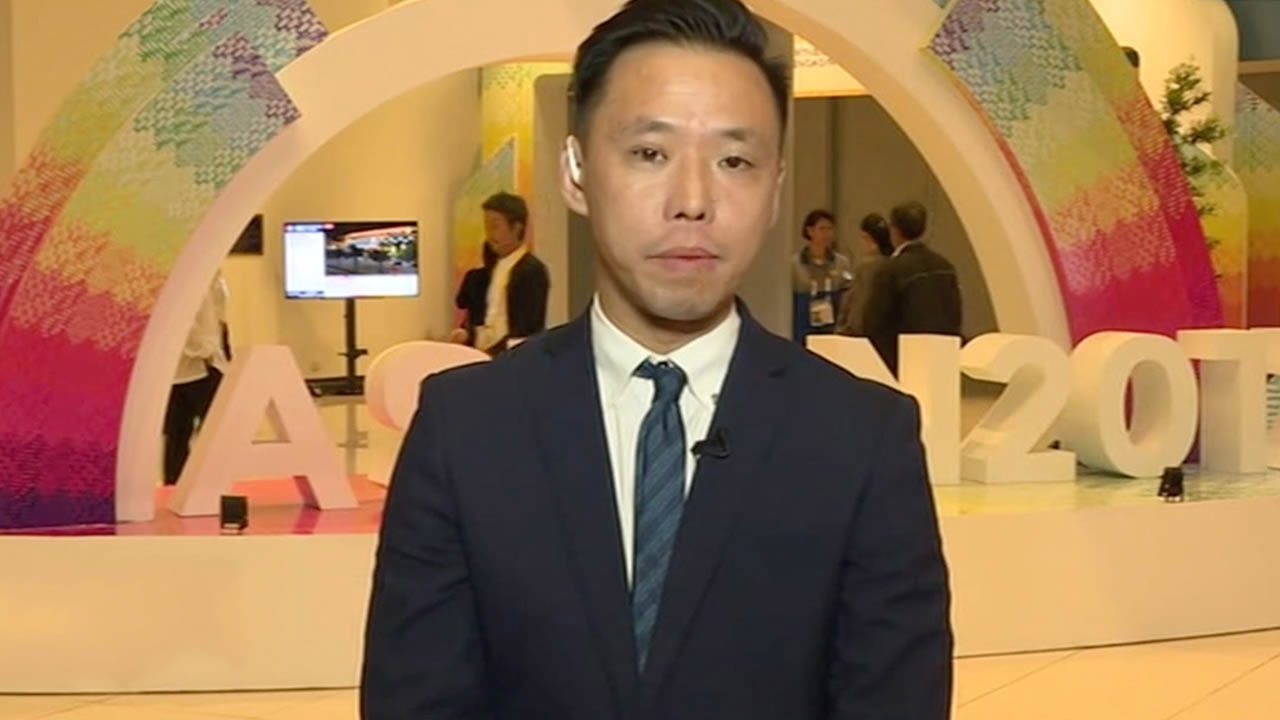
'Stabilizer of peace' in the South China Sea
At the ASEAN foreign ministers' meetings in August, China and ASEAN countries drew up and approved the framework of the COC, saying they would initiate substantive consultations on the code's text within the year.
The framework, Li said, epitomizes the consensus on the COC key elements reached by all parties and is an important outcome of their consultations already carried out.
"Through consultations on the COC, we hope that all parties could enhance their mutual understanding and trust, and strive to adopt the COC at an early date on the basis of consensus and make it a stabilizer of peace in the South China Sea," said the Chinese premier.
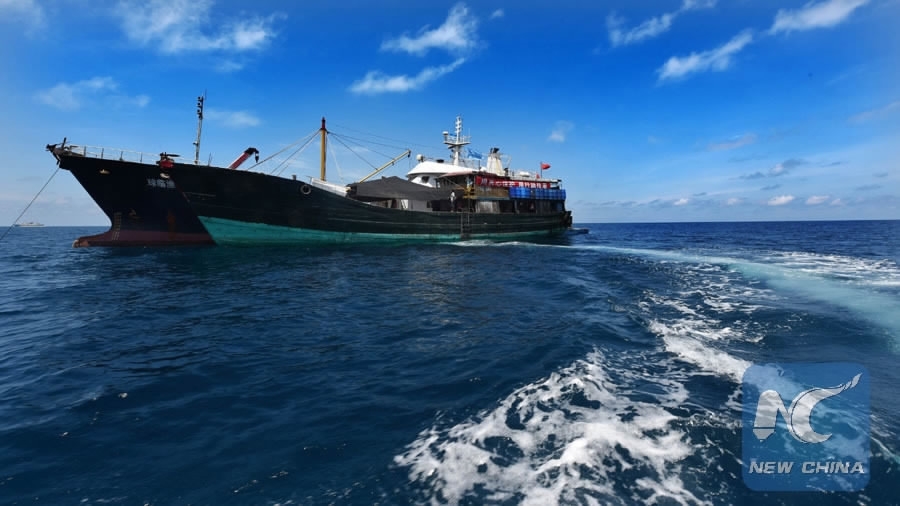
The boat of a Chinese team for the archaeological work of the Shanhu Island No. 1 shipwreck in the Xisha Archipelago, South China Sea, May 13, 2015. /Xinhua Photo
The boat of a Chinese team for the archaeological work of the Shanhu Island No. 1 shipwreck in the Xisha Archipelago, South China Sea, May 13, 2015. /Xinhua Photo
China and ASEAN countries started negotiations for a COC 15 years ago.
Although the COC framework itself will not resolve all disputes, Chinese Foreign Minister Wang Yi said in August that the most important thing is to send a "positive signal."
"We believe that China and ASEAN should cherish the important progress that has been achieved through joint efforts and send a positive signal to the outside world together," Wang stressed while attending the ASEAN foreign ministers' meetings. "This is the most important consensus we have reached."
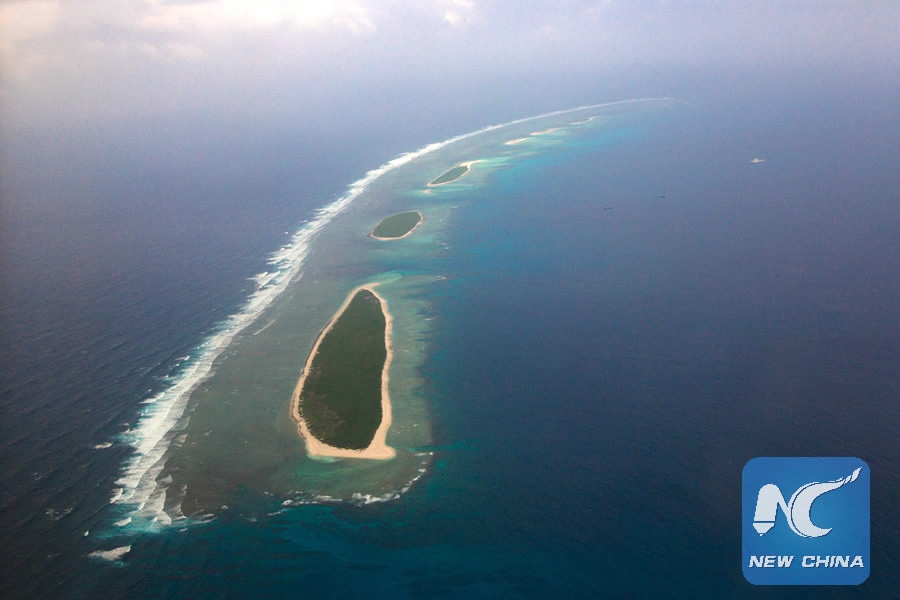
January 11, 2014: Yide Islands, part of the Xisha Islands in south China's Hainan Province. /Xinhua Photo
January 11, 2014: Yide Islands, part of the Xisha Islands in south China's Hainan Province. /Xinhua Photo
Resolving disputes with 'parties directly involved'
China, which has most of its freight of foreign trade passing through the South China Sea, wants peace and stability for that area more than any other country, Li noted.
He said China is committed to maintaining peace and stability in the South China Sea and resolving territorial and maritime rights disputes with parties directly involved through negotiations and in a peaceful manner, stressing that the stance would never change.
US President Donald Trump on Sunday offered to help mediate in the disputes in the South China Sea. "I am a very good mediator and a very good arbitrator," he said in Vietnam before heading to the Philippines for the 12th East Asia Summit. "If I can be of help in any way, let me know."
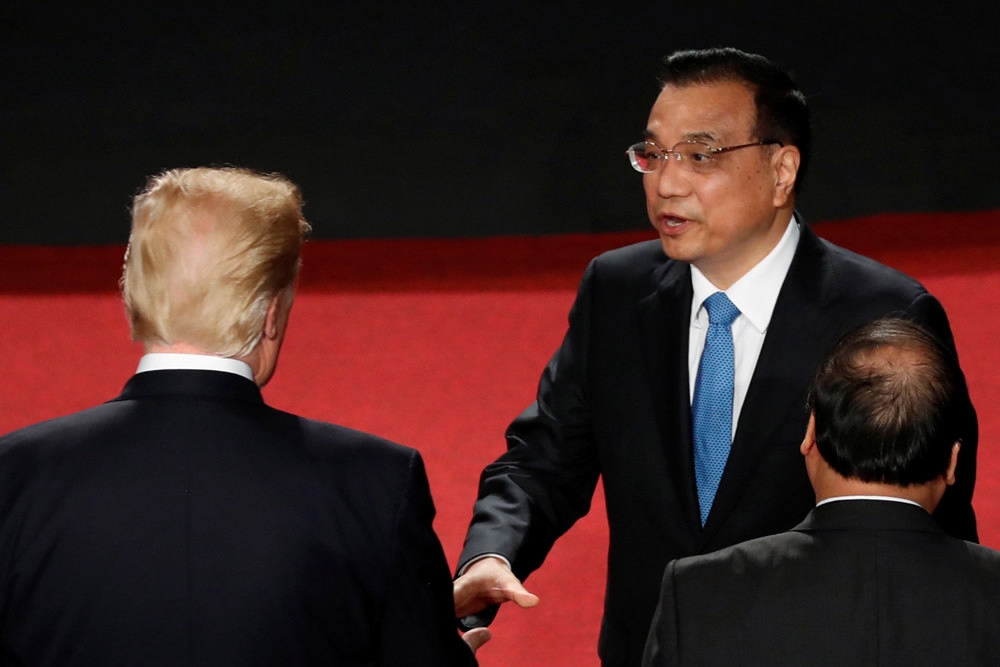
Chinese Premier Li Keqiang greets US President Donald Trump at the opening ceremony of the ASEAN Summit in Manila, November 13, 2017. /Reuters Photo
Chinese Premier Li Keqiang greets US President Donald Trump at the opening ceremony of the ASEAN Summit in Manila, November 13, 2017. /Reuters Photo
Beijing has repeatedly stressed that the disputes over the South China Sea should be resolved peacefully through dialogue and consultation between "parties directly involved." Xu Bu, Chinese ambassador to ASEAN, called it a "consensus" among China and ASEAN countries in an article published on People's Daily in August.
China believes regional countries have the desire, knowledge and ability to deal with the South China Sea issue, Chinese Foreign Ministry spokesperson Geng Shuang said on Monday in response to Trump's remarks.
"We hope countries outside the region can respect regional countries' efforts to maintain peace and stability of the South China Sea, and play a constructive role in this regard," Geng told a news briefing.
China-ASEAN vision 2030
China proposed formulating a vision for the strategic partnership between China and ASEAN toward 2030 to upgrade cooperation, according to Li.
This year marks the 50th anniversary of the foundation of ASEAN. China began to develop official ties with the regional bloc 26 years ago, after initial distrust between the two sides during the Cold War.
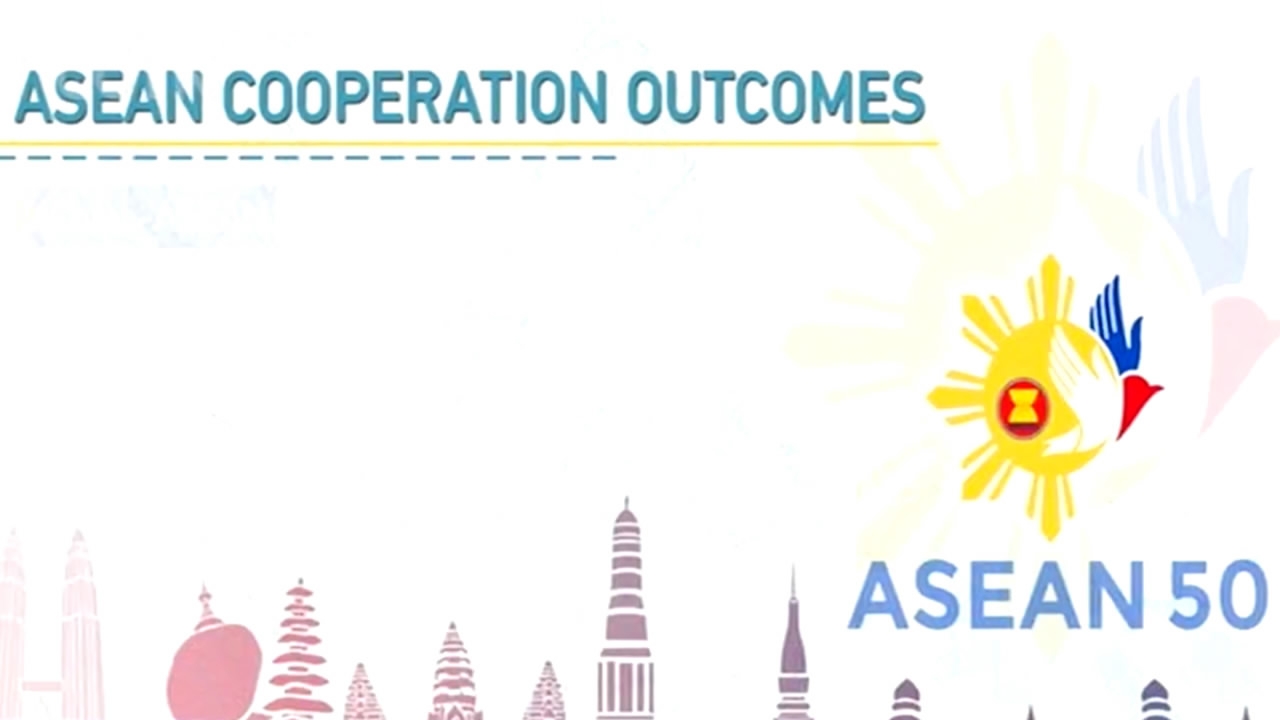
China-ASEAN dialogue relations began when then Chinese Foreign Minister Qian Qichen attended the opening session of the 24th ASEAN Ministerial Meeting in Kuala Lumpur in July 1991 as a guest of the Malaysian government. In July 1996, China became a full dialogue partner of ASEAN.
The two sides forged a strategic partnership in 2003, bringing cooperation in various fields to new heights.
Trade volume between China and ASEAN increased around 56-fold from less than 8 billion US dollars in 1991 to 452.2 billion US dollars in 2016. China has been the largest trading partner of ASEAN for eight consecutive years, and ASEAN has been China's third-largest trading partner for six years in a row.
In a congratulatory message on ASEAN's 50th anniversary on August 8, Chinese President Xi Jinping said China is willing to take the 15th anniversary in 2018 of the establishment of the China-ASEAN strategic partnership as an opportunity to build a closer community of common destiny together with ASEAN on the basis of what has been achieved so far.
(With inputs from Xinhua)
2849km

SITEMAP
Copyright © 2018 CGTN. Beijing ICP prepared NO.16065310-3
Copyright © 2018 CGTN. Beijing ICP prepared NO.16065310-3